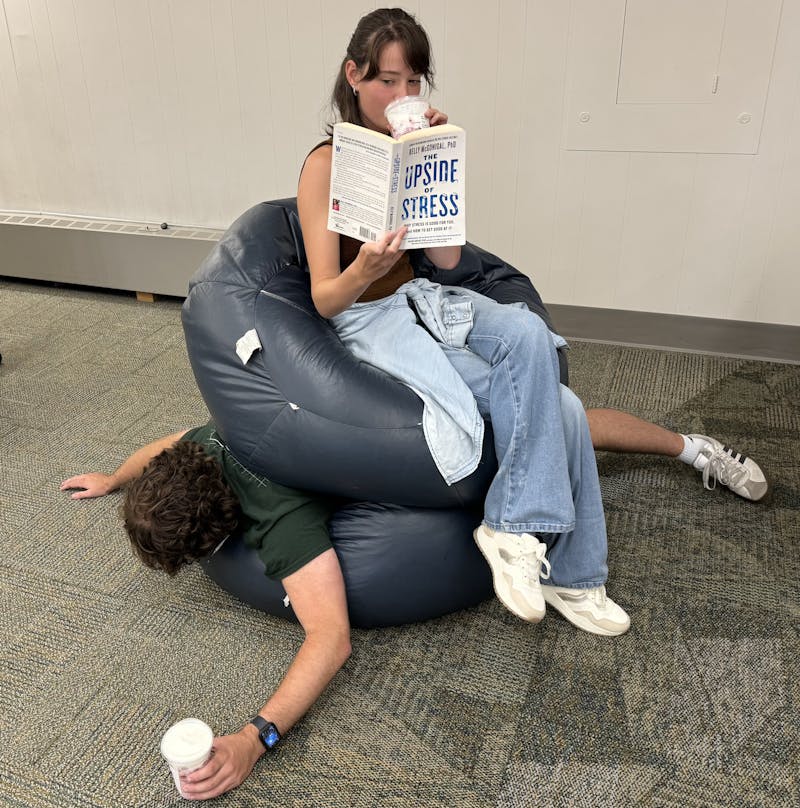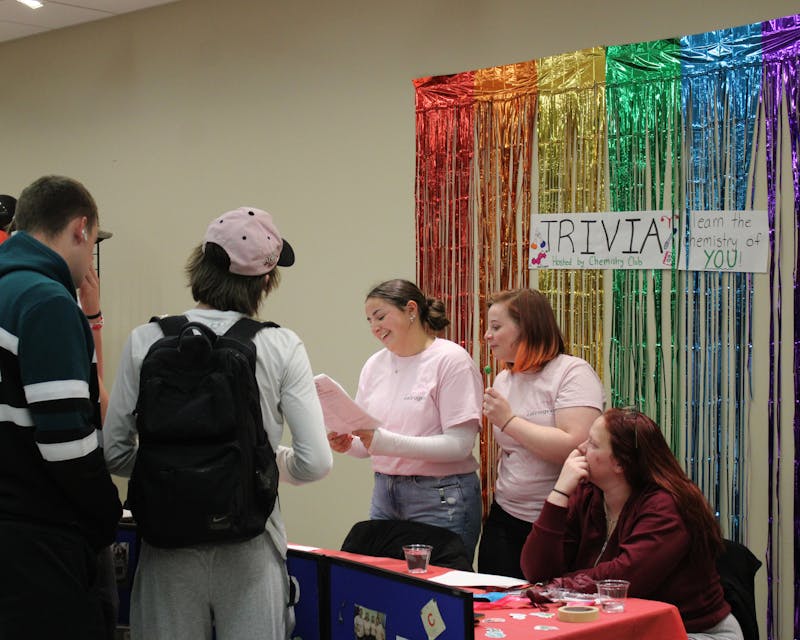Kim Van Alkemade sat at her desk with an assortment of literary publications displayed in front of her.
The most notable of them being the “Alaska Quarterly Review,” which she soon explained held one of her own memoir pieces.
Van Alkemade, a professor of English at Shippensburg University, has had more than a few of her creative non-fiction stories published in various literary journals.
She has recently started her first serious fiction novel. Her expertise in writing gives her the credibility to give up-and-coming authors suggestions on how to write and publish their own writing pieces.
Van Alkemade made the point that writers who simply write for small literary publications will not make enough money to support themselves solely with writing. Most are forced to hold full-time jobs while they continue writing on the side.
Some writers, such as Van Alkemade, are lucky enough to find a full-time job that incorporates writing and another passion they possess.
It may seem easy to some people to make up a fantastic world in which anything can happen and sell it to those attempting to escape their own reality, but for Van Alkemade, research is a large portion of her writing.
She strictly adheres to facts for her nonfiction memoir pieces, often conducting interviews and traveling in order to make sure she is giving her readers the truth.
Not only does she do in-depth research for her non-fiction pieces but she also has completed thorough research for the novel she is writing. She said it had always been hard for her to know where to stop fictionalizing.
Since her current novel includes historical information and background, Van Alkemade was given a platform on which to begin and end the novel within the realms of history.
For those attempting to become successful writers, Van Alkemade had important advice. Revising, said Van Alkemade, is a large part of being a writer.
She said, “I was at a writing conference a couple years ago and John Irving, who’s a novelist, was giving a talk. He said ‘if you don’t like revising, you shouldn’t be a novelist.’”
Van Alkemade went on to explain that the first draft of a work is only a small portion of the final piece of writing. Each sentence makes up the entire work, so each sentence should be focused on by itself, she explained. An author needs to learn how to revise not only larger issues in their writing, but also the miniscule issues.
Finding time to write is also a predicament that writers encounter. Van Alkemade suggested that writers set a specific amount of time each day to sit down and write, whether it is for three hours or one.
“Those are the first two things. Making that time every single day, whatever you can spare and just being really dedicated to it and also knowing that the whole first draft is going to change later,” she said.
According to Van Alkemade, one of the most important aspects of becoming a good writer is reading. By reading, a person can better understand how to string together their words in a coherent fashion.
Reading can also help a writers develop their own tone in the pieces.
By reading a particular author who incorporates a certain tone, it can help a writer figure out how to write in their own tone similar to the one they read.
“It’s just sort of fair that if I think somebody should read what I write, I should read what somebody else writes and it’s also how you really learn to be a writer,” said Van Alkemade.
“You read an essay or you read a story and you’re like, ‘Wow, that was great,’ and then you go back to it and ask ‘How did they do that?” said Van Alkemade.
While she sat behind her small desk with her various publications spread into a half moon in front of her, Van Alkemade continued to stress the importance of reading.
She acknowledged the fact that even she, as an accomplished writer, needed the influence of greater writers than herself to gradually increase her own writing abilities.
This is much in the same way, many Shippensburg students struggle to obtain a proficiency in writing that will allow them to achieve their own dreams.



The Slate welcomes thoughtful discussion on all of our stories, but please keep comments civil and on-topic. Read our full guidelines here.